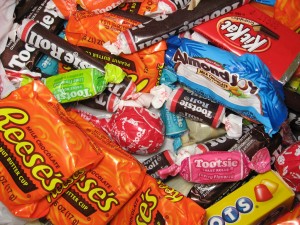
Candy – it can rot your teeth and your wallet.
Yesterday’s post by Domain Name Wire about Candy.com got us digging deeper into the alleged ban of the super-sweet domain.
With such a sizable investment at stake, the Candy.com owners are definitely worried about their ranking for “Candy”.
Google doesn’t seem to have banned Candy.com, however, as a quick search reveals more than 25,000 results for the domain. If it were banned from Google, there would be none.
However, when searching for “Candy” the generic domain Candy.com is nowhere to be found.
According to the article, Candy.com laid off some personnel, citing this current situation and we wonder if they also laid off their web developers in that batch.
If not, they should.
The web site design and functionality is very unappealing, including the logo. Further analysis of the HTML structures reveals the extensive use of tables and other obsolete structures. If any substantial SEO was done to the web site, we could not find any traces of it. Incidentally, Google does not depend on the meta keywords anymore in order to rank web sites, it’s all about content and its uniqueness among billions of other web pages.
So would it be easier to rank, if the company owned a non-generic brand of candy?
Most definitely. Descriptive pairs, such as “sweet candy” or brands, such as “skullcandy” will always get the .com at the #1 spot.
While generics maintain the top spot for the amount of type-ins, they can really plummet to the depths of Google or ‘offline’, as the Candy.com saga displays.
Copyright © 2025 DomainGang.com · All Rights Reserved.











